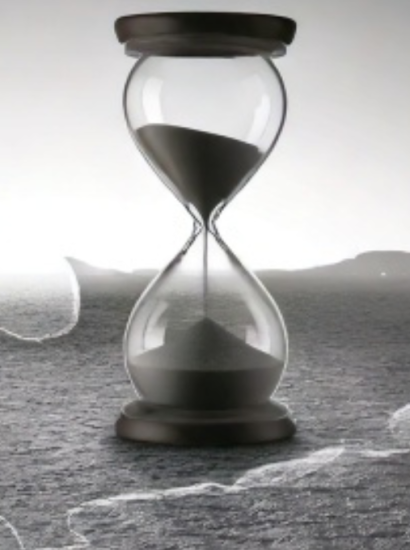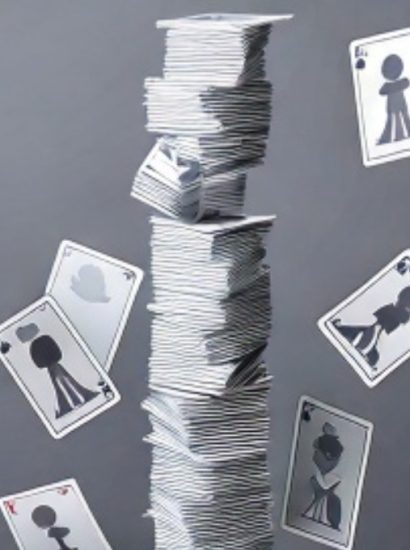This post is also available in: ΕΛΛΗΝΙΚΑ (GREEK) TÜRKÇE (TURKISH)
And the latest interview with Nicos Anastasiades (and others before it) showed with absolute clarity why the mass media are viewed with disdain. Because society considers them part of a system that is simply not working
In 2004, when the government tested the limits of Democracy – identifying ulterior motives in the opposing view and subjecting dissenters to mud-slinging – it was not alone. Much of the journalistic world was at its side. It took on the role of a representative of power, assisting in the conditions of unfreedom that Tassos Papadopoulos attempted to impose. A video released by a central news bulletin of the time, with two journalists adopting the then government’s narrative about American agents (expressing their shock that some were being paid to promote the Annan Plan without feeling the need to substantiate the claim), is characteristic of the situation that prevailed in that period. But mainly of the responsibility that journalism assumed at the time. Instead of being a check on power and a bulwark against fascism, it became the platform for its imposition. It was the first time that journalism was tested in such circumstances, exposing a huge inability to fulfill its role.
A lot has changed since then. Most of the political people of 2004 are gone (although, as the government’s reference to adopting the Turkish narrative showed the other day, not their practices), but the part of journalism that defined that period has remained at the forefront. As did the two protagonists of the video. One became a member of parliament, while the other is the one who took on the responsibility of interviewing Nicos Anastasiades, who in 2004 had been in the opposing camp, of the “agents”. Having before him a man under scrutiny (by the Authority and public opinion) over corruption issues [Editor’s note: reference to the Independent Authority against Corruption], who is accused of paving the way for a two-state solution, it was as if he was simply there to give the former President a platform to fight back. To turn from defendant to prosecutor. Whatever interventions he made created the impression and were intended to help make his narrative even more appealing or convincing. The only substantive question he asked was whether he would say “mea culpa” for his stance in 2004, to justify himself for the way he acted then. Such was [the journalist’s] identification with the man that instead of facing up to him as his duty dictates, when Nicos Anastasiades underlined that in DISY, “instead of self-reflecting on why we lost, we are trying to find out who was responsible for us losing,” he was quick to ask: “Why did we lose?” Confirming that the problem of our democracy is not confined to the level of our politics.
Just recently, society showed (for the first time to such an extent) its aversion to the current situation. This disdain was directed not only at the politicians but the entire system. And Nicos Anastasiades’ latest interview showed with absolute clarity why the mass media are viewed with disdain. Because society considers them part of a system that is simply not working.
The presence of mass media and journalists in general and the way they choose to operate when sitting opposite power, as in previous interviews with Anastasiades or Nikos Christodoulides or even Annita Demetriou, these are absolutely indicative of the inability of journalism to exercise effective checks on power through discernible roles, allowing democracy to function. Most importantly, however, they are indicative of the normalisation of this absence of checks on power. Where an institution, supposedly charged with ensuring accountability, has no problem creating the impression of operating as part of the system. Giving the impression it is there not to exercise checks [on power] but to serve it. It self-censors, experiencing guilt with whatever checks it pretends to perform, and has limited its role to putting out news that will increase clicks, news that is not the result of exercising checks but of what the politicians themselves wish to highlight. Whenever and wherever they wish. A form of journalism that acts as a mouthpiece of the system instead of as a fourth estate. As a result, the political system, beyond being completely discredited, now seems completely unrestrained.
With the credibility of politics and institutions in tatters, the burden of exercising checks and balances and resetting could have been taken up by journalism. However, for 20 years now, not only has it shown it is not the solution, but one of the main problems standing in the way of democracy functioning properly. It is confirmed daily that the political leadership is incapable of fulfilling its role, but even more incapable of fulfilling its role is the so-called fourth estate.
Hence, the journalist’s question was correct. Because “why did we lose” was not only about DISY. It was about all of us who make up this country.
Source: THAT’S WHY WE LOST!






